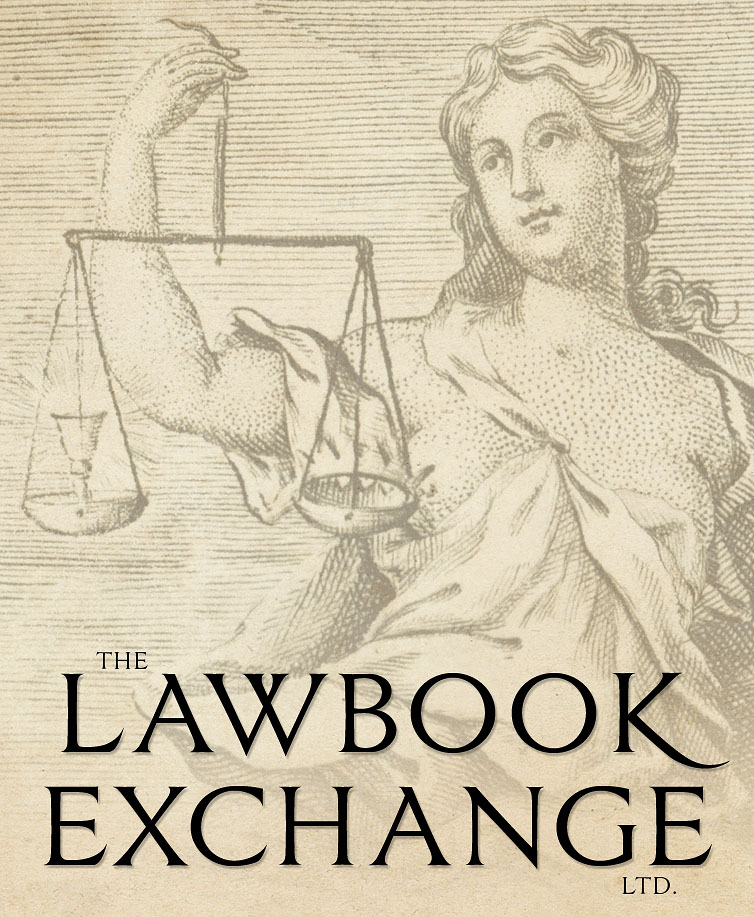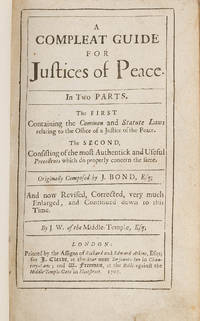1721
by Wood, Thomas
1721. London: W.B. for Richard Sare, 1721. 3rd ed.. London: W.B. for Richard Sare, 1721. 3rd ed. Civil Law for "Persons of Quality" Wood, Thomas [1661-1722]. A New Institute of the Imperial or, Civil Law. With Notes Shewing in Some Principal Cases Amongst Other Observations, How the Canon Law, The Laws of England, And the Laws and Customs of Other Nations Differ From It. In Four Books. Composed For the Use of Some Persons of Quality. Corrected. To Which is Added, As an Introduction, A Treatise of the First Principles of Laws in General; Of Their Nature and Design, And of the Interpretation of Them. London: Printed by W.B. for Richard Sare, At Gray's-Inn-Gate in Holborn, 1721. [ii], 144; xvi, [8], 414, [10] pp. Introduction has separate pagination and register; main text has separate title page. Includes one-page publisher list. Octavo (7-3/4" x 4-3/4"). Contemporary paneled calf, blind fillets and corner fleurons to boards, raised bands and lettering piece to spine, blind tooling to board edges. Light rubbing and some shallow scuffs, nicks and scratches to boards, light creasing to spine, front joint starting at head, spine ends and corners bumped and worn, front hinge cracked, rear endleaves partially adhered to pastedown. Light toning to interior, occasional light foxing, two owner signatures (one, struck through, of Richard Robbin, the other of Dudley Hussey) to title page. $950. * Third edition, revised. Wood's New Institute was first published in 1704, with subsequent editions in 1712, 1721 and 1730. It was the standard Anglo-American treatise of the eighteenth and early nineteenth centuries and a well-thumbed reference for jurists who wished to apply an element of civilian learning to their work, such as Joseph Story. As the title suggests, it is not only a summary of Roman law adapted to the needs of students of English law, but also a pioneering essay in comparative law. Wood pays some attention as well to Roman law's influence on the historical development of English law. Indeed, he observes that "Fleta and Bracton would look very naked if every Roman lawyer should pluck away his feathers" (ix). One of the former owners of this copy was likely Dudley Hussey [c.1741-1785], an Irish judge and politician who served as the Recorder of Dublin in 1784. English Short-Title Catalogue T117075.
(Inventory #: 82602)








